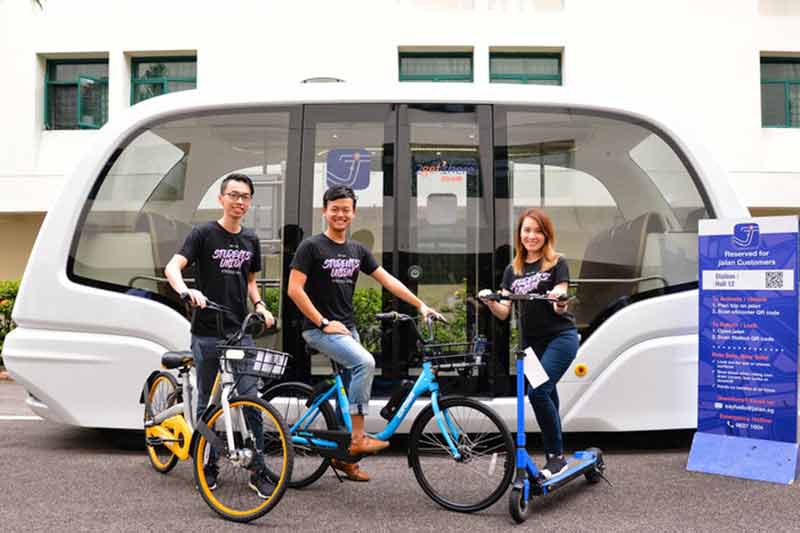
In
Singapore, Nanyang Technological University (NTU) announced
that it has joined forces with SMRT Services and 2getthere to deploy fully
automated Group Rapid Transit
(GRT) autonomous vehicles (AV) on the NTU Smart Campus by 2019.
The
three parties signed a Memorandum of Understanding (MoU) at a ceremony yesterday,
which paves the way for the GRT to be integrated into NTU’s transport network.
The parties are also exploring the possibility of extending this to JTC’s
CleanTech Park.
This
new collaboration with SMRT and 2getthere highlights NTU’s goal of developing
cutting-edge transport solutions that will benefit Singapore and beyond.
“NTU’s
campus is not only a living testbed for innovative technologies, but also the
first to test driverless vehicles in Singapore. Autonomous vehicles are an
integral part of the NTU Smart Campus vision, which leverages tech-enabled
solutions to create better living and learning experiences,” said NTU President Professor Subra Suresh.
The
collaboration will also involve conducting research to improve autonomous
vehicle technologies such as increasing the use of artificial intelligence,
developing advanced sensors and sensor fusion algorithms, and improving fleet
management technologies.
The
silent roadster uses magnetic pellets on the road for autonomous navigation and
can travel in both directions. It has a top speed of 40 kilometres per hour and
can ferry 24 passengers with seating space for 8.
The
new GRTs will be tested on NTU’s campus in a few phases, which will start
around the last quarter this year. The vehicles are expected to operate a
service route that connects NTU’s halls of residences with the main academic
areas, serving 200 to 300 passengers daily.
The
trial would be gradually expanded campus-wide, running alongside other AVs that
have already been undergoing tests since 2012. This latest test bedding of AVs
is part of the university’s Smart Campus initiative to develop rapidly
advancing transport technologies to benefit the NTU community and society.
The
GRT had undergone preliminary tests along a 350-metre route between two NTU
halls of residences since November last year. During the trials, close to 4,000
passengers were ferried between the two stops.
The
GRT is part of the Mobility-as-a Service testbed, a collaboration between NTU,
JTC and SMRT last September. The testbed seeks to integrate multiple modes of
transport, including shuttle buses, bike sharing systems, e-scooters and
e-bikes, and the autonomous GRT into a single mobility platform called
jalan-jalan, developed by mobilityX to improve connectivity and travel within
NTU’s campus and JTC’s CleanTech Park in Jurong Innovation District, which will
be the largest living lab in Singapore.
The
smartphone application jalan-jalan received strong support during its pilot run
between NTU’s campus and JTC’s CleanTech Park from last August. The app was
used to book over 67,000 trips for e-scooters, clocking a total mileage of over
80,000 kilometres.
“We
are delighted by the positive response from the CleanTech Park community on the
trial. Urban solutions, such as Mobility-as-a-Service, help us improve the
travel experience of the communities in JTC’s estates and lay the foundation
for next-generation connectivity and mobility infrastructure in our new estates,”
said Glory Wee, Director, Aerospace,
Marine and Urban Solutions, JTC.
Currently
serving 16 stops on NTU’s campus and the CleanTech Park area, the app will
gradually include more stops and manage more mobility options based on users’
feedback and test results.
As reported
earlier, NTU is rolling out Smart Campus initiatives, such as Smart Pass,
to harness the power of digital technology and tech-enabled solutions to
support better learning and living experiences, the discovery of new knowledge,
and the sustainability of resources. For AV
testing, NTU has jointly developed Singapore’s first AV test centre at the Jurong
Innovation District with the Land Transport Authority and JTC Corporation.
















